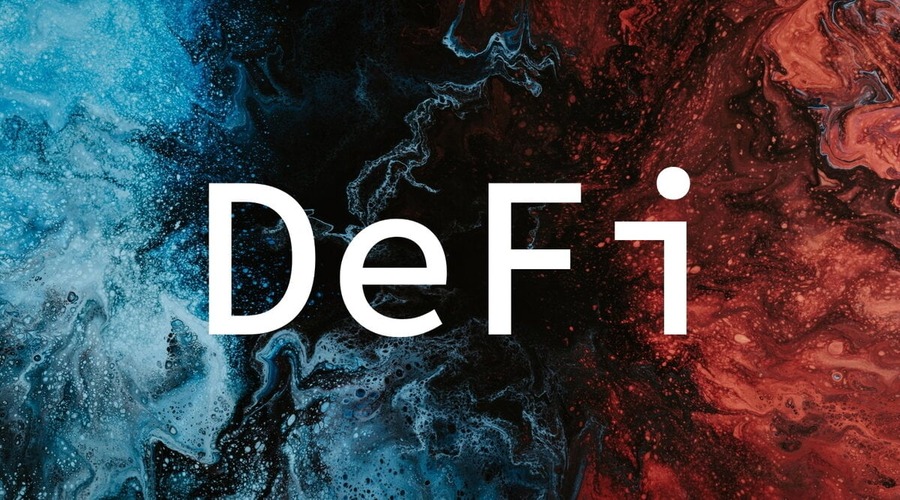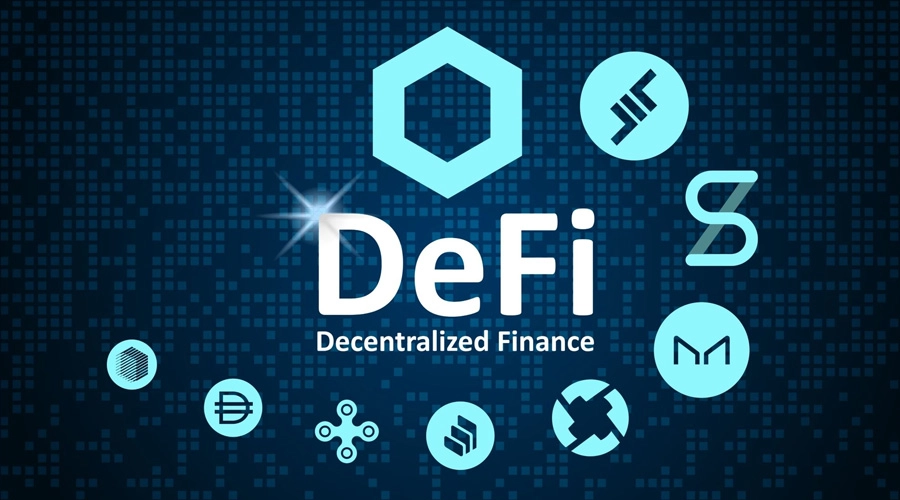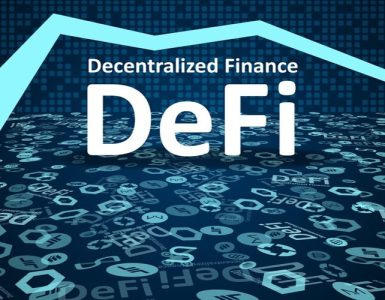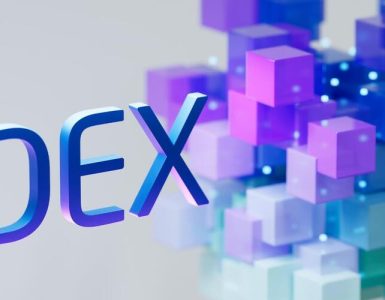In the world of decentralized finance (DeFi), the concept of traditional financial intermediaries is being redefined. DeFi projects leverage blockchain technology to create open, permissionless financial systems that allow for greater financial inclusion and innovation. However, with the immense growth and popularity of DeFi, there arises a critical need to ensure the security, reliability, and trustworthiness of these projects through auditing.
Introduction to DeFi Projects
DeFi projects, short for decentralized finance projects, are blockchain-based applications that aim to provide financial services without the need for intermediaries such as banks or brokers. These projects enable users to lend, borrow, trade, and invest in various digital assets in a decentralized manner. While DeFi has opened up new avenues for financial freedom, it also comes with inherent risks and challenges.
The Need for Auditing DeFi Projects
Auditing DeFi projects play a crucial role in ensuring the safety and integrity of these financial systems. By conducting thorough audits, potential risks can be identified and mitigated, protecting both investors and users. Additionally, audits contribute to building trust and credibility within the DeFi ecosystem, which is essential for its long-term sustainability.
Risks Associated with DeFi Projects
DeFi projects are not without their share of risks. Smart contract vulnerabilities, such as coding errors or design flaws, can lead to security breaches and financial losses. The interconnected nature of DeFi protocols also amplifies the impact of such vulnerabilities, potentially affecting multiple projects and users simultaneously. Therefore, identifying and addressing these risks through auditing is of paramount importance.
Protecting Investors and Users
Investors and users participating in DeFi projects need assurance that their funds and assets are secure. Auditing helps in identifying vulnerabilities and recommending necessary security measures to protect against potential attacks. This not only safeguards the interests of investors but also instills confidence in users, encouraging wider adoption of DeFi applications.
Building Trust and Credibility
Trust is the foundation of any financial system. By conducting audits, DeFi projects demonstrate their commitment to transparency and accountability. Auditing provides an independent evaluation of a project’s code, security practices, and financial operations, helping to build trust among investors, users, and the wider DeFi community.
Steps Involved in Auditing DeFi Projects

Auditing a DeFi project involves a comprehensive evaluation of its technical, economic, and financial aspects. Let’s explore the key steps typically involved in the auditing process:
- Understanding the project’s architecture and code: Before conducting an audit, it is crucial to have a deep understanding of the project’s architecture and underlying code. This involves reviewing the project’s whitepaper, technical documentation, and smart contract code. Gaining insights into how the project operates and its interaction with external systems is essential for effective auditing.
- Analyzing smart contracts: Smart contracts are the backbone of DeFi projects, automating financial transactions and enforcing rules. Auditors analyze the project’s smart contracts to identify potential vulnerabilities, such as coding errors, logic flaws, or security gaps. Thoroughly reviewing the code helps in ensuring that the smart contracts are secure, reliable, and perform as intended.
- Assessing security vulnerabilities: Security vulnerabilities are a significant concern in DeFi projects, as they can lead to devastating consequences. Auditors conduct rigorous security assessments to identify and mitigate potential risks. This involves evaluating the project’s attack surface, conducting penetration testing, and analyzing the project’s security architecture to ensure robust protection against hacks and other malicious activities.
- Testing functionalities and user interactions: To ensure the proper functioning of a DeFi project, auditors test its functionalities and user interactions. They validate the project’s features, such as lending, borrowing, or trading, to ensure they operate as expected. Additionally, auditors assess user experience, interface design, and transaction flows to identify any usability issues that could impact user satisfaction.
- Evaluating economic and financial aspects: Apart from technical considerations, auditing DeFi projects involves evaluating economic and financial aspects. Auditors analyze tokenomics, economic incentives, and the project’s financial operations to assess its sustainability and viability. This helps in identifying any potential financial risks, such as excessive token inflation or imbalanced reward structures.
Importance of Security Audits
Security audits are vital for DeFi projects, given their susceptibility to attacks and vulnerabilities. Let’s delve deeper into why security audits are of utmost importance.
- Preventing smart contract vulnerabilities: Smart contracts are executed as programmed, making them vulnerable to coding errors or logical flaws. Security audits help identify these vulnerabilities and recommend necessary fixes to prevent potential exploits, ensuring the integrity and safety of the smart contracts.
- Protecting against hacks and theft: DeFi projects often handle significant amounts of digital assets, making them lucrative targets for hackers. Security audits help identify potential attack vectors and recommend robust security measures to protect against hacks, theft, and unauthorized access to funds, thus safeguarding the project and its users.
- Ensuring reliability and stability: A secure and stable DeFi project is crucial for maintaining user trust and confidence. Security audits contribute to ensuring that the project operates reliably and as intended. By identifying and mitigating risks, audits help create a solid foundation for the project’s growth and longevity.
The Role of Third-Party Auditors
Third-party auditors play a crucial role in auditing DeFi projects. Let’s explore why engaging independent auditors is essential.
- Independent and unbiased assessments: Third-party auditors provide an independent and unbiased evaluation of DeFi projects. Their external perspective brings objectivity to the auditing process, reducing the chances of overlooking potential risks or vulnerabilities. Independent audits are highly valued as they provide an impartial assessment of a project’s security and reliability.
- Expertise and experience: Auditing DeFi projects requires specialized knowledge and expertise in blockchain technology, smart contracts, and cybersecurity. Third-party auditors possess the necessary skills and experience to conduct thorough audits, ensuring that all relevant aspects are evaluated. Their in-depth understanding of DeFi ecosystems and industry best practices helps identify potential risks and recommend effective security measures.
- Reputation and trustworthiness: Engaging reputable third-party auditors adds credibility to a DeFi project. Auditors with a strong track record and a trusted reputation bring assurance to investors and users. Their involvement signals that the project takes security seriously and is committed to providing a safe and reliable financial ecosystem.
Benefits of Auditing DeFi Projects
Auditing DeFi projects brings several benefits to the ecosystem and its participants. Let’s explore some of these advantages.
- Mitigating risks and vulnerabilities: By conducting thorough audits, potential risks and vulnerabilities can be identified and addressed proactively. Auditing helps minimize the chances of security breaches, financial losses, or smart contract failures, safeguarding the project and its users from potential harm.
- Enhancing investor confidence: Investors are more likely to participate in DeFi projects that have undergone audits by reputable third-party firms. Audits provide investors with an independent assessment of the project’s security and reliability, instilling confidence and increasing the likelihood of investment.
- Increasing adoption and growth: In the rapidly evolving DeFi landscape, trust and credibility are crucial for wider adoption. Audits demonstrate a project’s commitment to security and transparency, attracting more users and driving overall growth in the DeFi ecosystem. Increased adoption, in turn, leads to greater liquidity and further innovation within the DeFi space.
Challenges in Auditing DeFi Projects
While auditing DeFi projects is essential, it comes with its own set of challenges. Let’s explore some of the key challenges faced by auditors.
- Rapidly evolving technology: The DeFi space is characterized by rapid innovation and technological advancements. New protocols, smart contract standards, and DeFi primitives emerge frequently, making it challenging for auditors to keep up with the pace of change. Staying up to date with the latest developments is crucial to ensure effective audits.
- Complexity of smart contracts: Smart contracts can be complex, involving intricate logic and interactions with various protocols and external systems. Auditors need to navigate through these complexities to identify potential vulnerabilities. Understanding the intricacies of the project’s smart contracts requires a high level of expertise and experience.
- Lack of regulatory frameworks: DeFi operates in a largely unregulated environment. The absence of clear regulatory frameworks poses challenges for auditors in assessing compliance with existing regulations. As the regulatory landscape evolves, auditors need to adapt and stay informed about the latest legal and compliance requirements.
Best Practices for Auditing DeFi Projects
To ensure effective audits, auditors follow certain best practices. Let’s explore some key practices that auditors employ when assessing DeFi projects.
- Thorough code review: A comprehensive code review is an integral part of the auditing process. Auditors meticulously analyze the project’s smart contract code to identify potential vulnerabilities or weaknesses. They conduct a line-by-line review, verifying the correctness, efficiency, and security of the code.
- Security testing: Auditors employ various security testing techniques to identify potential vulnerabilities and attack vectors. This includes conducting penetration testing, vulnerability scanning, and other advanced security assessments to evaluate the project’s resistance to attacks and malicious activities.
- Economic and financial analysis: Auditing DeFi projects involves assessing the project’s economic model, tokenomics, and financial operations. Auditors analyze the economic incentives, token distribution, and potential risks associated with the project’s financial mechanisms. This analysis ensures the sustainability and viability of the project’s economic system.
- Continuous monitoring and updates: Auditing is an ongoing process, as the DeFi landscape and associated risks continually evolve. Auditors recommend regular audits and continuous monitoring of projects to identify new vulnerabilities or emerging threats. Additionally, auditors advise projects to implement necessary updates and security patches promptly to mitigate risks effectively.
Conclusion
Auditing DeFi projects is of paramount importance to ensure the security, reliability, and trustworthiness of these decentralized financial systems. By conducting thorough audits, potential risks and vulnerabilities can be identified and addressed, protecting investors and users. Auditing contributes to building trust and credibility within the DeFi ecosystem, fostering wider adoption and growth. Despite the challenges, auditors follow best practices and employ their expertise to provide independent assessments that enhance the security and integrity of DeFi projects.
FAQs
Q1. Are audits mandatory for DeFi projects?
Audits are not mandatory for DeFi projects, as the ecosystem operates in a decentralized and largely unregulated environment. However, audits are highly recommended to mitigate risks, protect users, and build trust.
Q2. How often should DeFi projects undergo audits?
The frequency of audits depends on various factors, such as the complexity of the project, the rate of code updates, and the level of user funds at risk. Generally, regular audits and continuous monitoring are advisable to ensure ongoing security and compliance.
Q3. Can audits guarantee the complete security of DeFi projects?
While audits significantly enhance the security of DeFi projects, they cannot guarantee absolute security. Audits mitigate risks and vulnerabilities, but new threats and attack vectors can emerge over time. Projects should continuously prioritize security and adopt best practices beyond audits.
Q4. How can users verify if a project has undergone an audit?
Projects that have undergone audits often publish the audit reports on their websites or share them through official communication channels. Users can refer to these reports to verify the project’s security measures and the outcome of the audit.
Q5. Are there regulatory requirements for DeFi project audits?
Currently, regulatory requirements for DeFi project audits are limited. However, as the regulatory landscape evolves, auditors may need to adhere to specific compliance frameworks and standards based on jurisdiction and project characteristics.




